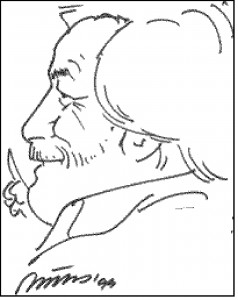
CODA: Local Politics and Reflections on Alex Pattakos’ “Prisoners of our Thoughts”
Russ Volckmann
Local Politics and
Some Notes based on Alex Pattakos’ Prisoners of our Thoughts, 2nd. Edition. San Francisco: Barrett-Koehler, 2010.
If you are old enough to remember Anthony Quinn, you no doubt remember him in Zorba the reek, a particularly zesty and often light-hearted role, albeit infused with ample amounts of Ouzo. Well, some of that spirit is passed on (without the Ouzo) in Alex Pattakos’ Opa! Day (September 15th) and the OPA Way! (www.TheOpaWay.com) that celebrates the many Greek contributions to the world. You can read more on the Huffington Post.
One of this Greek’s contributions to the world are the reflections and extension of the work of Victor Frankl in Prisoners of Our Thoughts with a Foreword by Stephen Covey. The book explores “seven core principles” that Pattakos has derived from Frankl’s work. This CODA offers some reflections of my own.
Here are the principles:
- We are free to choose our attitude toward everything that happens to us.
- We can realize our will to meaning by making a conscious, authentic commitment to meaningful values and goals.
- We can find meaning in all of life’s moments.
- We can learn to see how we work against ourselves and can learn to avoid thwarting our intentions.
- We can look at ourselves from a distance to gain insight and perspective as well as to laugh at ourselves.
- We can shift our focus of attention when we are coping with difficult situations.
- We can reach out beyond ourselves and make a difference in the world.
Pattakos offers a clear presentation of these ideas as well as helpful guidelines on strengthening the capabilities in our own lives.
The list shouldn’t surprise anyone who has been in touch with the human potential movement and its current aftermath in the form of success strategies, learning and development related to the integral approach. And, since this is not a book review, but a reflection, I wish to say something about one of these items on the list that has particular meaning for me at the moment—and I suspect will continue so for the rest of my ”active” life. That is the seventh item.
I am aware that some of what I am about to say may be “impolitic” of me as one who sees himself as building bridges. I hope this does not work against that. I am reminded of when Ken Wilber said in surprise that the thought I was “neutral” when it came to the fractious relationships between him and his Integral Institute and non-affiliated others who had an interest in his work or variations on it. Clearly, this suggested that there is a contest going on. I wish I had had the presence of mind to explain that I am not at all neutral. It is my hope to build bridges that will lead to more effective individual and collective outcomes than we might otherwise achieve. How very Green of me, I suppose. But it is not that I abhor conflict or contest. Rather, I also want to see how we can do some of the things that Terri O’Fallon and her colleagues at Pacific Integral are doing to help us find ways to synergize, collaborate and partner in addressing our challenges and differences. I feel like I am in good company.
The other day Jeannie and I went to our first Move On meeting in Tucson, Arizona. I have been on the Move On mailing list for several years and may even have contributed a bit to the organization, I can’t recall. I have a habit of sending small amounts of money to political organizations that I think may be doing some good (from my perspective). Attending this meeting was Jeannie’s and my first step out into the political community in our new home in Tucson (it has been a year now!). We both think of ourselves as very busy people (and we are) but we are approaching a time that may free us up a bit. In any case we are both strongly opinionated about many political issues, although I think Jeannie is much more articulate and persuasive around these issues than I. But we both decided it was time to take that first step
One of the things that was a surprise and encouraging to me at the meeting was the effort being made to reach across boundaries between Move On and other “progressive” political organizations. In particular I was intrigued by the challenges and potential for working with Hispanic and Native American organizations who might be more aligned with progressive political positions than that of the right wing organizations in Arizona and the US. A dramatic increase in the votes of these populations could turn around the rightwing government of this state.
It also occurred to me that using a Spiral Dynamics and Meshworks approach a la Don Beck, Elza Maalouf, Said Dawlabani and others in the Middle East and others in Europe might be applied in the humble context of Tucson politics. So this is a new beginning for me. I am feeling a bit hesitant, cautious and concerned that the risks before me and my community. Therefore, I am reaching out to anyone out there who might read this and have some ideas about how to leverage this process into the kinds of successes I am suggesting.
Is that you?
 And thanks, Alex, for the stimulating book! I will be thinking of you on OPA Day!
And thanks, Alex, for the stimulating book! I will be thinking of you on OPA Day!
